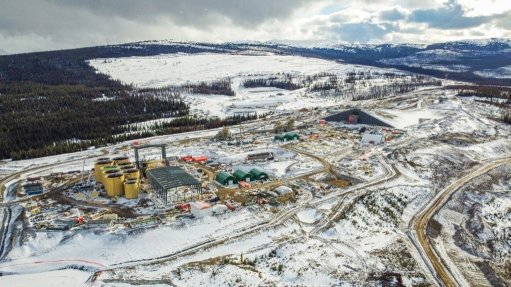Incoming Mozambique President reorganises government
In his first action in office, Mozambique’s recently inaugurated President, Filipe Nyusi, has restructured the country’s government. Among other changes, the Ministries of Mineral Resources and of Energy have been merged to create a new Ministry of Mineral Resources and Energy. Similarly, the Ministries of Finance and of Planning and Development have been combined into a Ministry of Economy and Finance.
The new Minister of Mineral Resources and Energy is Pedro Conceição Couto, who was previously Deputy Finance Minister. He is one of only eight members of the previous administration of President Armando Guebuza to remain in government. The man appointed Minister of Economy and Finance is Adriano Afonso Maleiane. In all, Nyusi’s administration has 22 Ministers and 17 Deputy Ministers. Consequently, his cabinet has seven fewer Ministers than that of his predecessor. The former Mineral Resources Minister, Esperança Bias, is no longer in government.
The appointment of Couto as Mineral Resources and Energy Minister has generally been welcomed, the Interfax news agency has reported. (There is no Deputy Minister.) “The selection of Couto is likely to be welcomed by oil and gas investors as a result of his reputation for honesty and efficiency. There will be concerns Couto’s lack of technical knowledge in the energy sector will undermine his performance at the Ministry,” global risk research, analysis and forecasting consultancy Verisk Maplecroft senior Africa analyst Sarah Collier told the news agency. “Nonetheless, this is likely to be outweighed by his overall solid reputation and the perception that – unlike previous Ministers – Couto is not biased towards particular players in the industry.”
However, the merging of the two pre-existing Ministries will be a challenge, Ernst and Young Mozambique managing partner Ismael Faquir pointed out to Interfax, “unless they create an internal structure that combines both areas with strong technical teams”. Consequently, Collier pointed out, there could be short-term disruption in the oil and gas sector as the focus of the officials and the Minister would be on the successful implementation of the merger. (Presumably, this would also affect the mining sector, which Collier did not mention.)
According to the news agency, the rationale for the merger of the two Ministries is the facilitation of the implementation of the Mozambique’s gas master plan. This seeks to use some of the country’s huge gas reserves to develop downstream industries. In terms of August 2014 Petroleum Law, 25% of gas production from all new finds has to be assigned to the domestic market. Maputo is hoping to use this gas to generate electricity to be converted into liquid fuels and as feedstock for petrochemical plants.
The new cabinet as a whole has also been welcomed. It contains a significant proportion of technocrats and other professionals. “There has been a stress on experience and competence, but also a careful balance of interest groups,” noted UK Open University development policy and practice senior lecturer Joseph Hanlon. At the swearing in of the new Cabinet, Nyusi stated that the priorities of his administration were fighting poverty, creating jobs, reducing regional inequalities and social inclusion.
Meanwhile, London-based Beacon Hill Resources, which went into administration earlier this month and has defaulted on its loans, has announced that it will have to sell its only asset, the Minas de Moatize coal mine, in Mozambique’s Tete province. Minas de Moatize (not to be confused with Vale’s much bigger Moatize mine) has a production capacity of 1.8-million tons a year, but was put into care and maintenance in June last year, owing to a lack of finance.
Also earlier this month, Indian-owned Jindal Mozambique Minerals suffered the third strike since August 2013 at its Chirodzi coal mine, also in Tete. Mozambique news agency AIM reported that the workers asserted that the company was discriminating against Mozambican workers and favouring foreign employees, especially Indians, although the workers claim that illegal immigrants from Malawi, Tanzania and Zimbabwe were also employed at the mine.
Comments
Press Office
Announcements
What's On
Subscribe to improve your user experience...
Option 1 (equivalent of R125 a month):
Receive a weekly copy of Creamer Media's Engineering News & Mining Weekly magazine
(print copy for those in South Africa and e-magazine for those outside of South Africa)
Receive daily email newsletters
Access to full search results
Access archive of magazine back copies
Access to Projects in Progress
Access to ONE Research Report of your choice in PDF format
Option 2 (equivalent of R375 a month):
All benefits from Option 1
PLUS
Access to Creamer Media's Research Channel Africa for ALL Research Reports, in PDF format, on various industrial and mining sectors
including Electricity; Water; Energy Transition; Hydrogen; Roads, Rail and Ports; Coal; Gold; Platinum; Battery Metals; etc.
Already a subscriber?
Forgotten your password?
Receive weekly copy of Creamer Media's Engineering News & Mining Weekly magazine (print copy for those in South Africa and e-magazine for those outside of South Africa)
➕
Recieve daily email newsletters
➕
Access to full search results
➕
Access archive of magazine back copies
➕
Access to Projects in Progress
➕
Access to ONE Research Report of your choice in PDF format
RESEARCH CHANNEL AFRICA
R4500 (equivalent of R375 a month)
SUBSCRIBEAll benefits from Option 1
➕
Access to Creamer Media's Research Channel Africa for ALL Research Reports on various industrial and mining sectors, in PDF format, including on:
Electricity
➕
Water
➕
Energy Transition
➕
Hydrogen
➕
Roads, Rail and Ports
➕
Coal
➕
Gold
➕
Platinum
➕
Battery Metals
➕
etc.
Receive all benefits from Option 1 or Option 2 delivered to numerous people at your company
➕
Multiple User names and Passwords for simultaneous log-ins
➕
Intranet integration access to all in your organisation


















